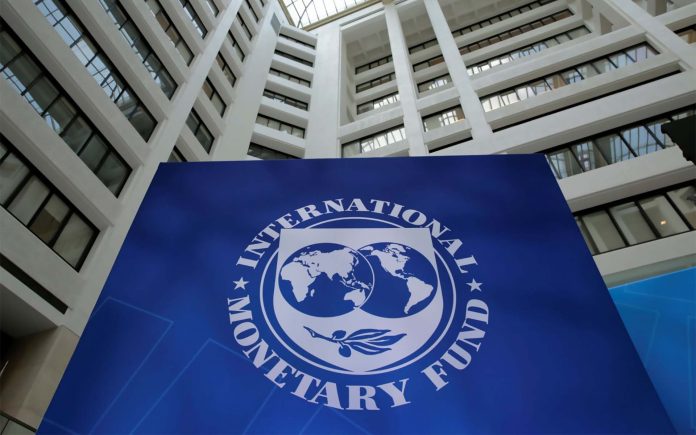Pakistan must renegotiate its terms and conditions for the current Extended Fund Facility (EFF) with the International Monetary Fund (IMF) amid the current coronavirus crisis faced by the country.
In an exclusive interview with Pakistan Today, leading economist and member of Prime Minister Imran Khan’s Economic Advisory Council Dr Abid Suleri said that the coronavirus (Covid-19) has pushed the world to a precipice; the twin crises of public health and economy can easily lead to both unforeseen and unpalatable changes in human society, as we know it today. He said that in Pakistan’s case, Covid-19 can cause an even greater uncertainty than it may do elsewhere.
The PM’s economic aide believes that this is mainly because the country was already struggling to come out of an economic crisis. “The economy is growing sluggishly, inflation is high, tax collection remains subdued and foreign exchange reserves and rupee’s value are both under serious pressures,” Dr Suleri noted. The economist added that the impact of Covid-19 on Pakistan’s economy would be manifolds. To begin with direct cost to contain the disease, treat the patients, and get prepared for the worst-case scenario through a functional public health care system.
He added that second is the cost to maintain lockdown engaging law enforcement agencies. “Third is the cost of lockdown: even a partial lockdown will result in a huge economic shock as up to 25 percent of people live below the income poverty line,” Dr Suleri said.
He added that more than half of the labour force is either self-employed or works in the informal sector and a significant number of people are daily wagers. “Most of them would get deprived of their daily earnings,” he feared.
The economist said fourth is the cost of subsidies and financial support for the economically vulnerable sections of the society during the lockdown period. He added that fifth is the loss of productivity and export orders due to closure of factories and cancellation of export orders.
Dr Suleri opined that sixth is the loss of remittances as most of our overseas Pakistanis are in lockdown in their respective host countries and will not be able to send remittances. He feared that seventh is the economic loss due to closure of transport, services, shopping malls, restaurants etc. Eighth is disruption of the educational cycle of our students. Ninth is the loss of the entertainment and sports industry, he stated.
“And tenth is possible loss due to delayed harvest of wheat crop, as the lockdown in rural areas would make it difficult for farmers to harvest their crop, store it and sell it properly. The list goes on,” Dr. Suleri shared.
He added that in order to face these challenges, we would have to build few scenarios. It is certainly not business as usual, the other two scenarios are best-case situations where one could contain the pandemic in a short period of time, and worst-case scenario.
“Our success in responding to the current pandemic will determine our scenario and for that we should have our economic policies and plans ready,” Dr. Suleri opined.
He shared that the most important thing for us in all scenarios is to renegotiate the terms and conditions for the current extended fund facility with the IMF.
Dr. Suleri said that likewise, any request for additional funds from IMF has to be negotiated under a crisis management flexible framework now. The PM’s economic aide added that adjusting the fundamentals of the economy through fiscal and monetary consolidation are extremely important but have turned irrelevant due to the above-mentioned economic shocks.
“For instance, right now we should reduce the interest rate, not to provide a stimulus to our businesses or to improve market sentiments, but to provide fiscal cushion to the federal government which would get a huge relief in its domestic debt servicing if the interest rate is brought down,” he said.
He maintained, “We need to make the best use of the prime minister’s economic relief package. “Whatever the federal government could squeeze from its kitty should start getting disbursed without any delay,” Dr Suleri opined.
He shared that Benazir Income Support Programme (BISP) has the database for almost 97 percent households of Pakistan. Relaxing the upper threshold of its beneficiaries would help in including some of the daily wagers who were initially not BISP beneficiaries. This would be the quickest way to reach out to them. He held that finally everyone must realise that COVID-19 is too big a crisis to not be left to the government alone. The need for social distancing should not absolve us from our social responsibilities, Dr Suleri noted.
He said that rich individuals and philanthropic organisations should come forward in these troubled times to provide relief to those who will require it during the lockdown. Dr Suleri believes this relief, however, should be channeled through a single government agency to ensure its targeted disbursement.
“Young people should be trained (online) immediately to work as volunteers to enforce the lockdown and distribute rations and supplies,” PM’s economic aide suggested. Dr Suleri held, “The crisis faced by Pakistan is undoubtedly unprecedented but we are lucky that we are not the first country to have been hit by Covid-19. We can sail to the safety only if we do not repeat the mistakes made by those hit before us.”




